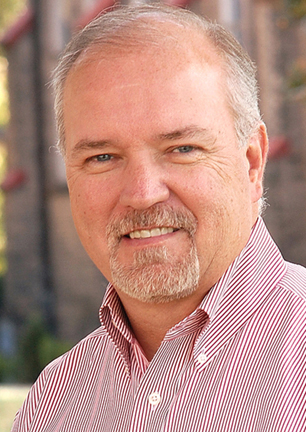
EASLEY, S.C. (BP) — Though it was not an audible voice, I never expected to encounter God in line at Starbucks.
I had taken a group of pastors to Boston on a Catch the Vision Trip with the North American Mission Board. After listening to several church planters and hearing their heart for the city, we took a coffee break.
As we were waiting in line, one of the pastors said to me, “Do you know the difference between us and these church planters?” “What is it?” I replied. “These guys have to focus on lostness every day in order to survive, and we don’t.” The voice that I heard was Tracy’s but the message I heard was from the Lord.
I’ve pastored my church for 21 years and hate to admit this, but we can do quite well just baptizing our kids from VBS, welcoming new people who have moved into our community and getting folks from neighboring churches when they are dissatisfied there. We don’t have to focus on lostness every day. We can do pretty well just by focusing on church people.
At least for a while.
One of the reasons that I like to go on mission trips is because missionaries and church planters inspire me to focus on people who still need to hear the Gospel. Missionaries are not tourists; they live on a mission, driven to share the Gospel with those who are living far from God. Their efforts are deliberate, their concern for their city is genuine. I am always challenged by their example and reminded that my church should do likewise.
Acts 5:42 has always been a verse that has fascinated me: “Every day in the temple, and in various homes, they continued teaching and proclaiming the good news that Jesus is the Messiah” (CSV). The church in Acts had plenty of opportunities to stop sharing the Gospel. They were threatened, jailed and beaten. Still, every day they continued sharing the good news about Jesus with those who desperately needed to hear it.
If we could somehow go back in time, I would love to ask them how they maintained their focus and their faithfulness. How did they resist the slide toward apathy and indifference? They would probably look at me with astonishment. “Apathy about Jesus?” They had the best news this world has ever heard! So each day simply brought new opportunities to tell people what God had done.
The early Christians did not have a program to promote. They did not have a budget to raise. They did not have a building to maintain. They did not have a staff to lead. Those things are not wrong. The first Christians just had a simple message — there is hope because of the cross.
Somehow, in the middle of all of our church work, we have to remember the work of the church. People broken by their sin need to know that there is an answer to their emptiness.
I remember going to Mexico about 15 years ago for some specialized training with the International Mission Board. The speaker did a great job of equipping us, but what I remember most is a simple three-phrase formula he engrained in our minds: “It’s not about us. It’s all about Him. Then it’s about them.”
To me, that summarizes a missionary’s motivation better than anything else I have ever heard. It also summarizes our task as a church.
Imagine the impact we could all have if we focused less on personal preferences, and more on the lostness around us. Does the lostness that permeates your community still penetrate your heart? If you need to refocus on what is really important, ask yourself one simple question: “How would a missionary reach this community?” Ask that question often enough and you may find yourself telling others, “It’s not about us. It’s all about Him. Then it’s about them.”

















